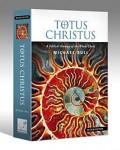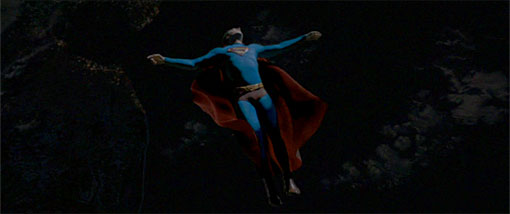Apr
15
2009
Boisterous with Wine
Bread and wine administered separate from a meal and in meagre doses portrays God as stingy. Besides this fact, the Biblical image of abundant wine as liquid fire is important for war. Peter Leithart, commenting on Zechariah 9:15, writes:
Continue reading
Comments Off | tags: Communion, Holy war, Peter Leithart, Zechariah | posted in Biblical Theology
Apr
15
2009
Is that all there is to it?
“Can it really be so simple?” That is the feeling we have about the church. She has been given a mission of global conquest. As Rudolf Schnackenburg has explained, “Through the Church, Christ wins increasingly his dominion over all things and draws them ever more powerfully and completely beneath himself as head… the Church’s mission is necessary and willed by Christ to bring the world of men and with this the whole of creation under his rule.” One cannot conceive of a more astounding project. Continue reading
Comments Off | tags: Baptism, Ecclesiology, Holy war, Peter Leithart, Power of the Gospel, Worship | posted in Biblical Theology
Apr
15
2009

The one who conquers and who keeps my works until the end, to him I will give authority over the nations, and he will rule them with a rod of iron, as when earthen pots are broken in pieces, even as I myself have received authority from my Father.
Christ refers here to Psalm 2. It had been fulfilled in the “head” at His ascension. At this point, it was yet to be fulfilled in the “body.”
Continue reading
Comments Off | tags: Acts, Angels, Ascension, Peter Leithart, Psalm 2, Sodom, Totus Christus, Two witnesses | posted in Biblical Theology, Totus Christus
Apr
13
2009
Peter Leithart’s excellent 2009 Easter homily is here.
Comments Off | tags: Peter Leithart, Resurrection, Totus Christus | posted in Biblical Theology, Christian Life
Apr
12
2009

The movie Superman Returns ends with some powerful iconography. Lex Luther has used a crystal stolen from Superman to create his own ‘new earth.’ Unlike Superman’s white-as-snow fortress of solitude, this is made of dark stone, Adamic earth. It rises up out of the sea and its growth threatens mankind.
Superman carries the weight of the entire sinful rock, and its growing kryptonite ‘spears’ pierce him. He ‘dies’ in the air and his fall to earth creates a ‘tomb.’ It’s worth a watch.
My point is, the idea of Christ being ‘lifted up’ is more than the bronze serpent, more than us ‘lifting Him up’ in our witness. [1]
Lifted up between heaven and earth, He was an open scroll. The bloodied lid of the Ark, the Word engraved (opened) on tablets of flesh. [2] In the sky, He was a new kapporet [3], a firmament covering to replace the old one that was ready to vanish away. He was a veil that was open, still protecting yet providing full access.
The Old Testament is full of mediators who are ‘lifted up.’ Revelation shows the Satanic new earth (Herod and Rome) thrown down from her mediatory position ‘in the air’, and the saints ascending to meet their Lord ‘in the air’ as a new mediatorial city.
a) Christ was lifted up.
b) Satan was thrown down.
a1) The saints of the New Jerusalem ascended.
b1) The compromised mediators were thrown down.
Satan is no longer the prince of the powers of the air.
__________________
[1] A Herod also fulfilled the bronze serpent image, eaten alive by maggots on his throne ‘in the air’ after speaking ‘like a god.’ He prefigured the dirty scavenging birds feasting on the harlot in Revelation.
[2] The Tabernacle layout is a symbolic cruciform man. Notice that Christ on the cross was beneath ‘the Name’, an open scroll containing the disputed truth of His identity. The Lord’s Name was said to dwell above the lid of the Ark.
[3] See Peter Leithart, The Footstool of His Feet.
Comments Off | tags: Add new tag, Ark of the Covenant, Covenant curse, Crucifixion, Film, Herod, Peter Leithart, Preterism, Tabernacle, Typology | posted in Biblical Theology, The Last Days
Apr
11
2009
Centered on recent events, preaching inevitably loses most of its transformative power. From apostolic times, the task of preaching has never been a matter of providing a “religious insight” into what’s going on, a new slant on what everyone already knows. The purpose of apostolic preaching was to announce an event that, according to Paul, no one could know without a preacher. The point of preaching is not to answer questions that are already circulating. The point is to challenge the entire worldview that gives rise to those questions, and to announce the reality of a new world in which all the old questions have to be reformulated or discarded altogether.
Peter J. Leithart, Of Preaching and Newspapers.
Comments Off | tags: Peter Leithart, Power of the Gospel, Preaching | posted in Christian Life, Quotes
Apr
10
2009
“Prayer is not a retreat from the history of redemption into private ecstasies of communion. Prayer is a chief instrument by which the Father renews the world through His sons who are in the Son and who have received the Spirit.”
Peter Leithart, Romans 8, continued, www.leithart.com
Comments Off | tags: Peter Leithart, Postmillennialism, Prayer | posted in Biblical Theology, Christian Life
Apr
10
2009
Peter Leithart has posted about the structure of Galatians 6:
Structure Of Galatians 6
Galatians 6 is roughly organised as a chiasm:
A. Bear one another’s burdens
…..B. Boasting in oneself and not another
……….C. Sowing and reaping; flesh
……………D. Do good
……….C’. Judaizers want good show in flesh/boast in flesh
…..B’. Boasting only in Christ Jesus: crucified to world
A’. I bear stigmata
The links are mainly verbal. The verb “bear” appears in verses 1, 5, and 17. ”Boasting” is a theme in 6:4 and 13-14, contrasting the boasting-in-flesh of the Judaizers with the boasting-in-the-death-of-flesh of Paul. ”Flesh” is found in verses 8 and 12-13. At the centre is an exhortation to persevere in doing good to all men, and especially to do good to the family or “household” of Abraham that Paul has been describing throughout the letter.
I could be imagining things, but I see the feasts of Leviticus 23 here as well:
A. Sabbath (the Spirit overshadows, the Word comes from God) call to worship
000B. Passover (Adam presented) self-examination/confession
000000C. Firstfruits (High Priest – Adam ascends) ascension of praise
000000000D. Pentecost (Law given) sermon
000000C’. Trumpets (armies – Eve presented) offertory
000B’. Atonement (sin expelled from nation – Eve ascends) communion
A’. Booths (rest) doxology and dismissal
Note also that when this pattern appears elsewhere in the Bible, the last point, Booths, is a glorified Solomon (Sabbath-king) sending out letters or chariots with the Word, beginning this cycle in the next generation. Here, Paul himself is the epistle carrying the graven words of God on tablets of flesh.
Comments Off | tags: Hermeneutics, Literary Structure, Paul, Peter Leithart, Typology | posted in Biblical Theology
Apr
10
2009
Solomon’s New Broom
Solomon continued David’s role as redeemer/blood avenger. Like Ham’s attack on Noah, and Absalom’s sin on the roof, Adonijah’s request for one of David’s concubines was recognised as a grasp for the throne. Joab was judged for his shedding of innocent blood, and although he grasped the horns of the altar, refuge was lawfully denied (Numbers 35:15-19).1
The last priest of the house of Eli, Abiathar, was exiled before the Ark was given a permanent house. Like Gideon’s bull, the guilty “died” on the old altar before a new one could be established.
Solomon’s judicial execution of his father’s enemies was not paranoid. It was “good death.” The Lord always builds His house out of the corpses and plunder of His enemies. As death precedes resurrection, so discipline must come before joy (Hebrews 12:11) and Solomon’s actions here demonstrated his great wisdom as a judge.
______
1 “Why grasp the horns of the altar when you’re a fugitive in the temple? How is it legitimate to touch the horns, when the altar as a whole is forbidden to all but the priests? The answer to the first is found in the premise of the second: The altar is holy, and communicates holiness to anyone who touches it (if they aren’t holy already). When a fugitive grasps the horns of the altar, he becomes sanctified and hence inviolable. If found guilty, he will be killed (like Joab) because of a sacrilege; but if he is innocent, he protects himself with a taboo of holiness.” Peter J. Leithart, Horns of the Altar, www.leithart.com
Comments Off | tags: Absalom, Adonijah, David, Ham, Justice, Noah, Peter Leithart, Solomon, Wisdom | posted in Biblical Theology, Ethics
Apr
10
2009
Peter Leithart comments on Ian McEwan’s remembrance of Updike: The Flight of the Spirit.
Comments Off | tags: Culture, Peter Leithart | posted in Quotes



























